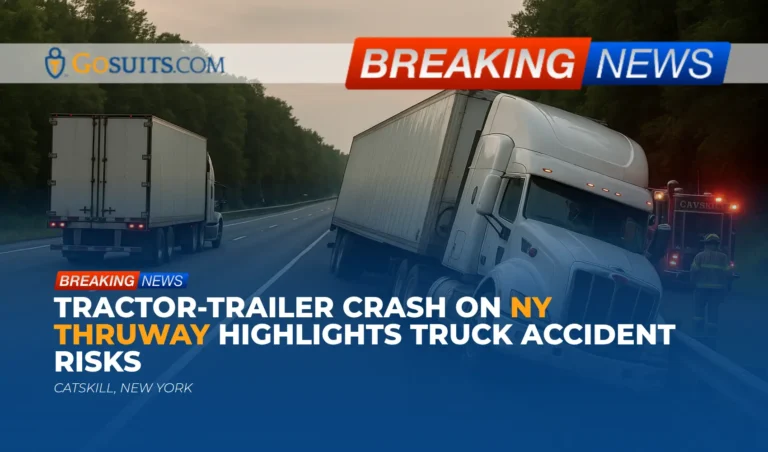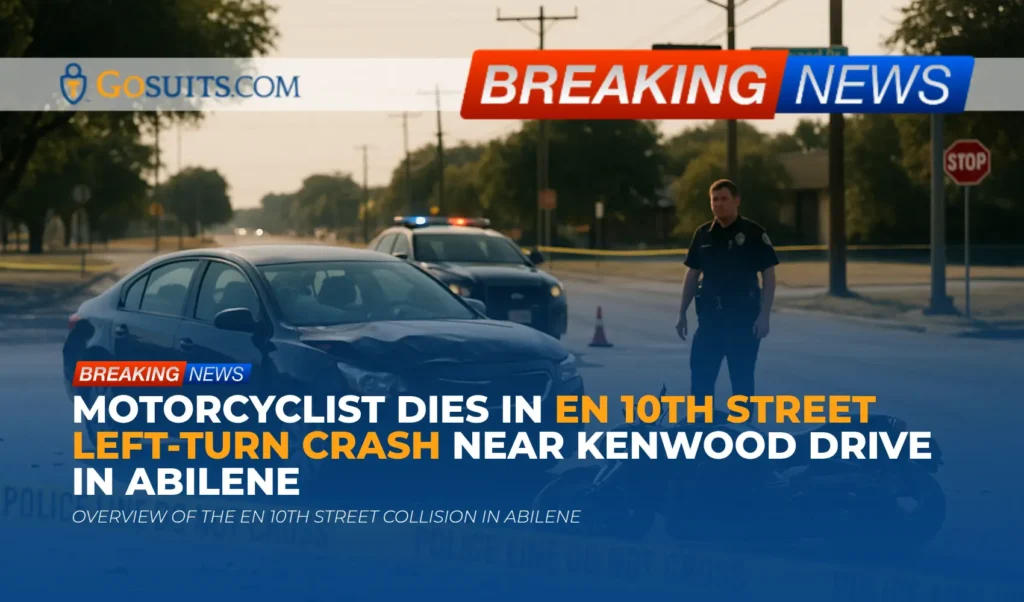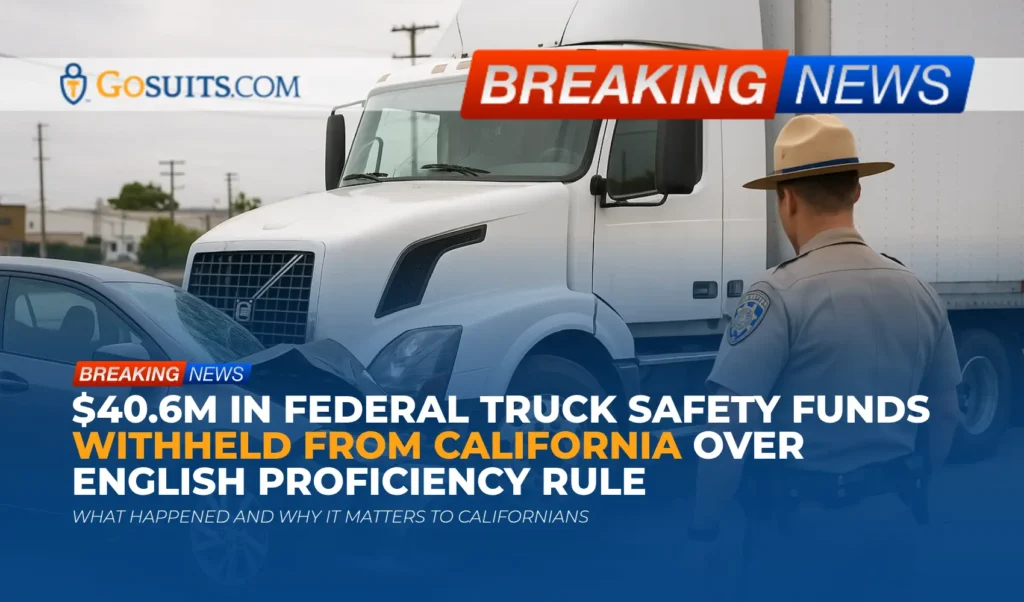On August 11, 2025, a collision involving two tractor-trailer trucks occurred on the northbound side of the New York State Thruway between exits 20 and 21. According to a press release from the New York State Police Troop T, the accident happened at approximately 4:45 AM. The incident prompted a response from the Catskill Fire Company and resulted in an investigation by the state police.
Incident Details
The investigation revealed that a 2024 Peterbilt tractor-trailer, driven by Andnet Yitna Kirubel of Windsor, Ontario, Canada, was traveling northbound in the left lane. As Kirubel attempted to move into the right lane, his vehicle struck the rear of a 2018 Freightliner truck. The Freightliner was being driven by Jorge Montes De Oca of Miami, Florida.
The collision caused the Peterbilt truck to sideswipe the Freightliner as both vehicles continued north. Ultimately, the Peterbilt veered off onto the right shoulder, where the cab overturned. The trailer of the Peterbilt came to rest against the guiderail.
No Injuries Reported
Fortunately, both drivers escaped the accident without injury. Law enforcement officials did not issue any tickets in connection with the crash.
Legal and Safety Implications of Truck Accidents
Commercial truck accidents, such as this one, raise significant legal and safety concerns. Due to their size and weight, tractor-trailers can cause substantial damage and serious injuries in collisions. These incidents often require thorough investigations to determine the cause and contributing factors.
Determining Liability in Truck Accidents
Establishing liability in a truck accident is a complex process that may involve multiple parties. In addition to the truck drivers themselves, other potentially liable parties could include the trucking company, the owner of the truck, the manufacturer of the truck or its components, and even cargo loaders if improperly loaded cargo contributed to the accident.
Several factors are considered when determining liability, including:
- Driver Negligence: This includes actions such as speeding, distracted driving, driving under the influence, or violating traffic laws. In this specific incident, the investigation focused on the lane change maneuver of the Peterbilt truck driver.
- Trucking Company Negligence: Trucking companies have a responsibility to ensure their drivers are properly trained and licensed, and that their vehicles are well-maintained. Negligence on the part of the trucking company could include inadequate hiring practices, failure to conduct proper vehicle inspections, or pressure on drivers to meet unrealistic deadlines, leading to fatigue.
- Equipment Failure: Mechanical defects or failures, such as faulty brakes, tires, or other critical components, can cause or contribute to accidents. Regular maintenance and inspections are crucial to prevent equipment-related crashes.
- Cargo Issues: Overloaded or improperly secured cargo can shift during transit, affecting the stability of the truck and increasing the risk of an accident.

Hours of Service Regulations
The Federal Motor Carrier Safety Administration (FMCSA) has established Hours of Service (HOS) regulations to prevent driver fatigue and reduce the risk of accidents. These regulations limit the number of hours a truck driver can drive and work within a given period. Violations of HOS regulations can be a significant factor in determining liability in a truck accident.
Importance of Evidence Preservation
In the aftermath of a truck accident, preserving evidence is crucial for a thorough investigation and any potential legal claims. This includes the truck’s electronic logging device (ELD), which records driving hours, speed, and other data. Accident reconstruction experts may also examine the scene, vehicle damage, and other physical evidence to determine the sequence of events leading to the crash.
Potential Damages in Truck Accident Cases
Individuals injured in truck accidents may be entitled to various types of damages, including:
- Medical Expenses: This covers past and future medical costs associated with the injuries, such as hospital bills, doctor visits, physical therapy, and medications.
- Lost Wages: Compensation for lost income due to being unable to work as a result of the injuries.
- Property Damage: Reimbursement for damage to vehicles or other property involved in the accident.
- Pain and Suffering: Compensation for the physical pain and emotional distress caused by the injuries.
- Punitive Damages: In cases where the at-fault party’s conduct was particularly reckless or egregious, punitive damages may be awarded to punish the wrongdoer and deter similar behavior in the future.
The Role of Insurance Companies
Truck accidents often involve complex insurance claims processes. Multiple insurance policies may be involved, including those of the truck driver, the trucking company, and potentially other parties. It is important to understand the insurance coverage available and to navigate the claims process effectively.

Commentary from Gosuits Catskill, New York Personal Injury Attorney
Commercial truck accidents can be devastating events, often resulting in serious injuries and significant financial losses. The investigation into the August 11th collision on the New York State Thruway highlights the numerous factors that can contribute to such incidents. While this particular accident thankfully did not result in injuries, it serves as a reminder of the potential dangers associated with large commercial vehicles.
A thorough investigation is essential to determine the cause of the accident and identify all liable parties. Understanding federal and state regulations governing the trucking industry, such as Hours of Service rules and vehicle maintenance requirements, is crucial in these cases. A skilled personal injury attorney can assist victims in navigating the complex legal and insurance landscape, ensuring their rights are protected and they receive the compensation they deserve.






